Subtract the Golden Nugget Lake Charles from last month’s Louisiana gambling revenues and they’re absolutely flat with 2014. Two wannabe REITs went in opposite directions. 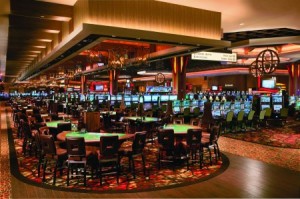 Pinnacle Entertainment‘s aggregate Pelican State casinos were up 9% while Caesars Entertainment got hammered, down 14%. Boyd Gaming‘s considerable Louisiana holdings were up 2%. If Gaming & Leisure Properties succeeds in its hostile takeover attempt of Pinnacle, the Federal Trade Commission will almost certainly force it to sell one of the two Baton Rouge riverboats it would control. The choice between Hollywood Baton Rouge ($7 million) and L’Auberge Baton Rouge ($15 million, well over half the market) ought to be easy, as L’Auberge is running away with the market, up 17% this month alone. Tropicana Entertainment‘s Belle of Baton Rouge ($6 million) brought up the rear.
Pinnacle Entertainment‘s aggregate Pelican State casinos were up 9% while Caesars Entertainment got hammered, down 14%. Boyd Gaming‘s considerable Louisiana holdings were up 2%. If Gaming & Leisure Properties succeeds in its hostile takeover attempt of Pinnacle, the Federal Trade Commission will almost certainly force it to sell one of the two Baton Rouge riverboats it would control. The choice between Hollywood Baton Rouge ($7 million) and L’Auberge Baton Rouge ($15 million, well over half the market) ought to be easy, as L’Auberge is running away with the market, up 17% this month alone. Tropicana Entertainment‘s Belle of Baton Rouge ($6 million) brought up the rear.
In Lake Charles, the new premier market for gambling, the Golden Nugget pulled in $14 million but L’Auberge du Lac still grossed $27 million, a 5% improvement on last year. (The 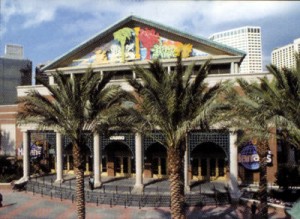 beneficial synergies seem to be flowing predominantly in Pinnacle’s direction.) Isle Grand Palais and Boyd’s Delta Downs suffered tiny losses of business at the hands of the two giants. Although New Orleans got thoroughly eclipsed by Lake Charles, grossing $51 million to the latter’s $70 million, almost every operator was up last month: Pinnacle’s Boomtown New Orleans rose 13%, Boyd’s Treasure Chest swelled by 7% and Churchill Downs‘ Fair Grounds racino did 3% better. Only the Harrah’s New Orleans glass was half-full or half-empty. It grossed more than the three other casinos combined, but also absorbed a 19% dropoff in revenue.
beneficial synergies seem to be flowing predominantly in Pinnacle’s direction.) Isle Grand Palais and Boyd’s Delta Downs suffered tiny losses of business at the hands of the two giants. Although New Orleans got thoroughly eclipsed by Lake Charles, grossing $51 million to the latter’s $70 million, almost every operator was up last month: Pinnacle’s Boomtown New Orleans rose 13%, Boyd’s Treasure Chest swelled by 7% and Churchill Downs‘ Fair Grounds racino did 3% better. Only the Harrah’s New Orleans glass was half-full or half-empty. It grossed more than the three other casinos combined, but also absorbed a 19% dropoff in revenue.
Another troubled Caesars property was low-grossing Louisiana Downs, down 25%. Horseshoe Bossier City managed to hold its ground, up 1% on a $17 million gross. Sam’s Town Bossier was 1% off last year’s pace while Pinnacle’s Boomtown Bossier City was up 2%. Eldorado Shreveport continued to be a solid performer, up 5%, while new kid on the block Margaritaville continues to enjoy the fruits of novelty, rising 13%. Sometimes 13 is a lucky number.
* Straining at its limits, the Pennsylvania casino industry has banded together and brought the Legislature a wish list worthy of Christmas. It includes things the casinos want (24-hour alcohol service, comped drinks, tax-free free play) and things they don’t (slot routes, more 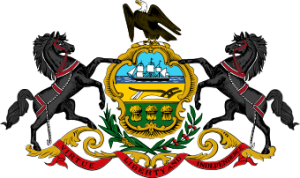 resort casinos — if you guessed that resort-casino owners weren’t part of the coalition, you guessed right). Some of the requests — such as tax credits for upgrading their facilities and for marketing to out-of-state patrons — you’d think they’d do out of enlightened self-interest. However, it’s probably easier to get a tax reduction by this side-door method than tackling the state’s 55% levy on slot revenues head on. While the coalition chafed at some “strict regulatory requirements,” they proposed one of their own: make sanctions on underage gambling more stringent.
resort casinos — if you guessed that resort-casino owners weren’t part of the coalition, you guessed right). Some of the requests — such as tax credits for upgrading their facilities and for marketing to out-of-state patrons — you’d think they’d do out of enlightened self-interest. However, it’s probably easier to get a tax reduction by this side-door method than tackling the state’s 55% levy on slot revenues head on. While the coalition chafed at some “strict regulatory requirements,” they proposed one of their own: make sanctions on underage gambling more stringent.
The most dramatic change requested by the coalition was to basically eliminate Pennsylvania’s testing process for slots and electronic games … if a game is legal in Arizona, say, it should automatically be OK for the Keystone State. As Sen. Robert “Tommy” Tomlinson (R) put it, “We have a terrible lag. If there’s a hot machine and it’s not at SugarHouse or Parx or Harrah’s, Mom and Pop are going back to Atlantic City.”
The opposition to slot routes isn’t a purely theoretical exercise: state Rep. Paul Costa (D, below) has just such a bill in the hopper, on the rationale that “people who go to taverns and 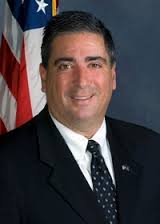 frequent local bars are more inclined to stay in their neighborhood” than go to casinos. Responded the coalition, “a rollout of [VLTs] in Pennsylvania will almost certainly result in casino-like games on every Main Street in every town across the commonwealth and threaten thousands of living-wage jobs currently filled at our casino facilities.” Tomlinson adds that slot routes “decimated casinos in Illinois” but Costa is dismissive of those numbers.
frequent local bars are more inclined to stay in their neighborhood” than go to casinos. Responded the coalition, “a rollout of [VLTs] in Pennsylvania will almost certainly result in casino-like games on every Main Street in every town across the commonwealth and threaten thousands of living-wage jobs currently filled at our casino facilities.” Tomlinson adds that slot routes “decimated casinos in Illinois” but Costa is dismissive of those numbers.
Due to a lack of consensus (read: Sands Bethlehem), the casino coalition sidestepped Internet gambling. Legislators are not so shy. They have to bridge a chasm in the state budget that is estimated as being between $1.5 billion to $2.3 billion. The less-palatable alternative is to raise income, property or sales taxes. House Gaming Oversight Committee Chairman John Payne (R), noted that Internet gambling and fantasy-sports wagering are “an industry that’s already here.”
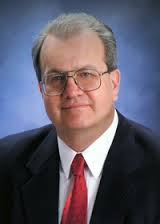 He has an ally in Internet-legalization co-sponsor Rep. Nick Kotik (D, right), whose optimism is tempered. Observing that meeting Gov. Tom Wolf‘s budget is comparable to ascending Mount Everest, Kotik says of i-gaming’s fate, “It all depends whether the Republicans think it’s a viable alternative. For a lot of Republican members, gambling is taboo. That makes it a hard sell.” Payne adds that Atlantic City and Delaware responded to inroads made by Pennsylvania by pushing back with Web wagering.
He has an ally in Internet-legalization co-sponsor Rep. Nick Kotik (D, right), whose optimism is tempered. Observing that meeting Gov. Tom Wolf‘s budget is comparable to ascending Mount Everest, Kotik says of i-gaming’s fate, “It all depends whether the Republicans think it’s a viable alternative. For a lot of Republican members, gambling is taboo. That makes it a hard sell.” Payne adds that Atlantic City and Delaware responded to inroads made by Pennsylvania by pushing back with Web wagering.
Making an odd bedfellow with Sheldon Adelson is Pennsylvania Family Institute prexy Michael Geer, who says that in 2004, “We predicted the government would be back for more because it’s addictive.” State Sen. Kim Ward (R) says the existing industry has to be brought into the ‘Net-betting tent: “If you don’t, you won’t get the support of the industry and we will end up in some type of lawsuit.”

